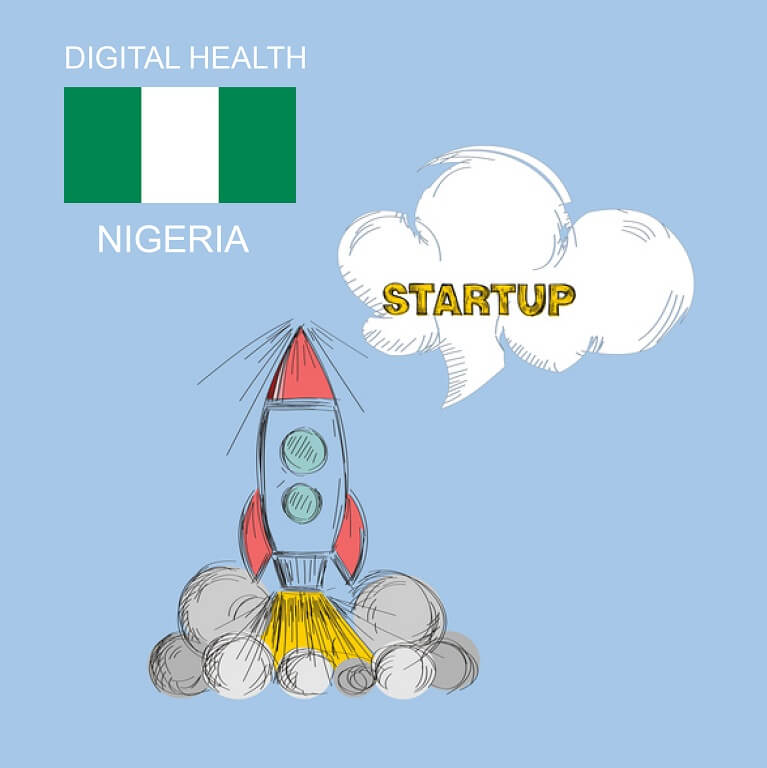Digital health startup boom in Nigeria
Nigeria is currently the most populated country in Africa and seventh largest populated in the world with an estimated population of over 180 million people in 2016. The majority reside in remote rural and poor areas where access to basic social amenities such as quality healthcare services is either poor or non-existent. The country’s total expenditure on healthcare as % of GDP is 4.6.
According to WHO, Nigeria still has low densities of nurses, midwives and doctors to effectively deliver essential health services (1.95 per 1,000), while the health workforce is concentrated mostly in urban tertiary health care services delivery.
In 2017 the president of Nigeria Buhari indicated that 90% of Nigerians lack health insurance.
Problems present solutions, and Nigerian entrepreneurs are quick to seize the opportunity which is seeing numerous local innovations such as , online health insurance subscription plans (Avon HMO), telemedicine (Kangpe and Mobidoc), medical devices (MDaaS), blood center services (Lifebank), clinical reference information and e-learning (Medenhanz), medication supply ( Medsaf and Drugstoc), to the phenomenal aviation emergency ambulance such as Flying Doctors Nigeria.
The country is facing a boom of numerous tech hubs which are supporting upcoming tech entrepreneurs such as the Co-Creation Hub, as well as getting support from various players such as Facebook, which announced to launch a hub in the country, and the World banks’ US$3 million investments to back Nigerian tech hubs, making Nigeria a vibrant hotspot for digital health tech innovation in Africa.
Nigeria, fastest growing healthcare startup ecosystem in Africa
According to a new DisruptAfrica report, 115 medical-related startups operating in 20 African countries, have attracted over $19 million worth of investment, with countries such as Nigeria, South Africa and Kenya leading the scene. The rise in digital health startups in Nigeria can be owed to factors such as a big market with a population of over 180 million people placing a demand on healthcare services in the country.
Nigeria is also witnessing a rise in internet users with over 91.6 million users recorded. According to GSMA, the mobile industry in West Africa is forecast to contribute more than $50 billion annually to the region’s economy by 2022, with countries such as Nigeria being one of the top contributors.
The rise in internet users and mobile penetration offers a test bed for digital health developers to research new ideas and deploy their mobile-first services to be embraced by the rising mobile subscribers in the region.
The country is also witnessing a rise in tech hubs giving support to digital startups hence creating even more breeding space for digital health startups.
Nigeria has local business tycoons such as Tony Elumelu supporting young entrepreneurs in the country and across Africa via programs such as the Tony Elumelu Entrepreneurship Programme (TEEP), a $100 million 10 years commitment fund. The African tech startup ecosystem never misses to attract the attention of major foreign investors such as Google and Facebook who are investing in the region.
The Nigerian government is also contributing to the growing healthcare startup ecosystem through programs such as the startup Nigeria, a 3-month incubation program designed to help Nigerians with great innovative ideas create viable products and gain traction, and the governments’ NOTAP policies to strengthen local software development and acquisition.
The Nigerian new health policies are also becoming favourable to tech entrepreneurs such as the National Health Act 2014 which permits health care providers to disclose patient healthcare records to other HCPs and third parties.
Reliable internet is being more widely available and telecoms companies have boosted data capacity, while new payments companies have made online transactions safe. As of today, internet penetration is just 29% throughout Africa, meaning that the majority of growth and network effects are still to come.
Funding flowing in the Nigerian digital health industry
It has been estimated that about 30,000 Nigerians spend $1 billion annually on medical tourism. To date, 115 Africa’s e-health startups combined have raised investment in excess of US$19 million. Major options to finance digital health startups across Nigeria and Africa include Seed investors and venture capitalists, such as the $100 million Tony Elumelu Entrepreneurship Program (TEEP), the US$1 million African Entrepreneurship Award, and the African Innovation Foundation (AIF), Government schemes such as the YouWin Connect program, and the banks such as the World Bank and European Investment Bank(EIB).
Nigeria’s’ Babymigo a community for expecting mothers & Young parents is part of Google’s’ Launchpad Africa to benefit from the $20 million in grants while Mobicure through its child-focused application OMOMI is one of 16 global startups selected as a part of the 2020 World Expo Innovation Impact Grant Programme, where the winners will receive a grant of up to US$100,000.
Medismarts a health tech startup that provides cloud-based data management platforms to healthcare institutions has reported securing an undisclosed seed funding from Sasware a technology, while Helium Healthcare an Electronic Health Records company has secured $170K of seed fund.
Global incubators such as the Merck Accelerator program in Germany are also starting to invest in Africa with Nigeria’s Life Bank selected among the 10 startups from across the world to benefit from financial support of up to EUR 50,000 and free workspace.
Amref innovate for life fund for startups in sub-Saharan Africa innovating local and homegrown digital health solutions, is yet another strong direct response to digital health support in Africa.
Government policies promoting digitization of healthcare in Nigeria
The Nigeria government is promoting digitization through startup-related programs, such as The Government Enterprise and Empowerment Program (GEEP) that offers a no-interest loan scheme with a one-time 5 percent administrative fee for costs, and the President Buhari’s Aso Villa Demo Day, the SMEDAN Loans projects for SME loans, and the Youth Entrepreneurship Support (YES-Programme) of the Nigerian Bank of Industry (BOI) , provides the young aspiring Nigerian entrepreneurs the opportunity to access funds for the actualization of their business ideas, expansion, as well as the modernization of their existing businesses.
The YouWiN Connect Program also supports young entrepreneurs as they plan, start and grow their businesses, while the N-Power programme is meant to addresses the challenge of youth unemployment by providing a structure for relevant work skills acquisition and development.
The Lagos State Employment Trust Fund (LSETF) is mandated to directly invest ₦ 25Billion in helping Lagos residents grow and scale their Micro, Small and Medium Enterprises (MSMEs) or acquire skills to get better jobs.
Apart from the funding programs the government is starting to set policies that could further help digital health integration through such as the new National Health Act 2014 which permits Health Care Providers to disclose patient healthcare records to other HCPs and third parties in the interest of the patient hence providing a space for credited tech entrepreneurs to innovate.
What others can learn from this African country
Although Nigeria’s healthcare system just like that of other African countries currently faces multiple drawbacks, from inadequacy and lack of infrastructure, personnel, and training, and unbalanced distribution of resources, which makes patients to wait in long queues, travel vast distances or wait weeks for a visit from a healthcare provider, the situation is presenting itself as an opportunity for digital health innovators in Africa to change lives of millions of people.
The country is seeing a disruption of different digital health startups in the space of mhealth (Kangpe and SaferMom), medical devices (MDaaS) and blood bank (Lifebank).
According to Nigerian entrepreneurs like Sayu Abend, CEO of SpacePointe, the Nigerian startup ecosystem besides having incubator and accelerator programs in place, has a huge market available with one of the most advanced online and fintech infrastructures on the continent.
The huge market presents the entrepreneur with diverse and complex use cases to solve for, such that if you get it right in Nigeria, you can launch anywhere on the continent.
The Nigerian government has provided support to aspiring entrepreneurs. As of today, internet penetration is just 29% throughout Africa, meaning that the majority of growth and network effects are still to come. This combined with lack of jobs, rise in poverty and the rapid population growth, a highly competitive nature is being developed for startups and self-taught tech innovators to push the African digital health tech innovation scene to the edge.
Image credit: www.istockphoto.com

















